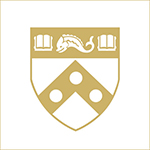The Leslye M. Heisler Associate Professorship for Lung Cancer Excellence
 The Heisler family established this Chair in 2018 to spur progress in research to cure lung cancer. The Professorship honors Leslye M. Heisler who is remembered not only as a as a beloved wife, mother, and grandmother, but also as a competitive golfer and bridge player, fashion model, and generous philanthropist.
The Heisler family established this Chair in 2018 to spur progress in research to cure lung cancer. The Professorship honors Leslye M. Heisler who is remembered not only as a as a beloved wife, mother, and grandmother, but also as a competitive golfer and bridge player, fashion model, and generous philanthropist.
Leslye Mathes Heisler (1930-2013) spent much of her school years in St. Louis, MO, and graduated from Washington University with honors. On an East Coast trip in 1952, she met Jerome (Jerry) Heisler on a blind date; six months later they married and moved to Wilmington, DE. Along with raising her family, she volunteered for community organizations such as the Junior Board of the Medical Center of Delaware and DIAL, which was a hotline supporting young children. She was also President of the Auxiliary of the Kutz Home, a senior living community. Leslye was asked by several women’s clothing stores to model clothes, which she did in New York, Philadelphia, and Wilmington. She also became a terrific golfer, and she and Jerry enjoyed touring great golf courses throughout the U.S. and Europe. Leslye later took up bridge and became a Bronze Life Master.
Jerry Heisler (1926-2017) was known as a businessman and entrepreneur. After serving in the 10th Army on Okinawa in World War II, he co-ran the family business, Delaware Barrel, with his older brother Albert. The brothers learned of a newly declassified “top secret” plastic, polyethylene, and became the first to use it in a coating for the interior of steel containers. With this success, they eventually took the company public with an oversubscribed IPO. After merging with Containers of America, Jerry led his division to become the largest industrial plastic container manufacturer in the world. He became known internationally for his representation of the industry in government matters concerning the transportation of hazardous materials, chemicals, food, and pharmaceuticals. He received numerous awards for his contributions to the packaging industry and retired at the age of 58. He later returned to work, purchasing the Delaware Industrial Park, which grew into the Reybold Group of Companies, one of the larger real estate developers in Northern Delaware.
Among the Heislers’ many philanthropies, they have supported the Barnes Jewish Hospital in St. Louis, MO, which Leslye’s family helped found in the early 1900s; the family created the Leslye Mathes Heisler Financial Scholarship in her memory to support nursing students who cannot afford to pay for tuition.
 Current Chairholder
Current Chairholder
Charu Aggarwal, MD, MPH
Charu Aggarwal, MD, MPH serves as an Associate Director at the Penn Center for Cancer Care Innovation (PC3I) and as the Leslye Heisler Associate Professor for Lung Cancer Excellence at the Perelman School of Medicine. At PC3I, she is also the Director of the Program in Precision Medicine Innovation.
Dr. Aggarwal specializes in the management of patients with lung cancer, with a specific clinical research focus on the development of personalized therapeutic approaches, and the discovery and application of biomarkers to guide treatment. She is a world-renowned expert in the application of plasma-based gene sequencing in the management of patients with metastatic lung cancer. Dr. Aggarwal is actively working on implementation of comprehensive testing and discovery of approaches focusing on early detection, detection of resistant mutations, and disease monitoring. In all her roles, she is advancing precision medicine initiatives that bring new technologies and approaches to the clinic. Ultimately these innovations will continue to move cancer treatment away from chemotherapy and deliver on the promise of personalized cancer therapy.
Dr. Aggarwal has also recognized disparities in testing rates across determinants such as race, ethnicity, and geography. She is leading efforts to improve access and find novel ways to address these health equity issues. Her team is investigating ways for hospitals and clinics to successfully implement molecular testing, specifically to overcome the biases that stand in the way of equal access. They are putting their research into action, implementing protocols to increase plasma-based sequencing. These procedures have made a significant difference: more than 90 percent of lung cancer patients get tested at Penn Medicine, compared to a national average of under 50 percent. Additionally, the team has demonstrated the benefit in survival rates for those patients who undergo testing prior to receiving first line therapy.

